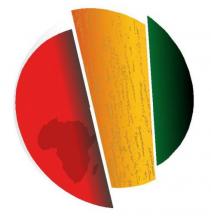EDUCAFRICA
Rua Arquitecto Mário Bonito, 107, Cidade da Maia
Educafrica was created by a group of teachers who decided to take advantage of the skills acquired by their students in favor of projects that help underprivileged communities. ONGD Educafrica is a Non-Governmental Organization for the Development of public utility, recognized by the Camões Institute. It works in the areas of Education, Maternal and Child Health and Environmental Sustainability in Portuguese-speaking countries in Africa. The objective is to combine teaching and learning in Portugal with schools and institutions in the PALOP (Portuguese-speaking African countries), developing sustainable projects, of low cost for the beneficiaries, in a formative perspective. The motto is "give the fishing rod and teach to fish."
The team consists of teachers from different areas, an environmental technician and a nurse.
Solar Tabanca Project
This project aims to harness solar energy for the construction of technologies to improve the living conditions of the beneficiaries. To date, 4 technological devices have been implemented in Guinea-Bissau:
- Solar dehydrator, for dehydration of fruits and vegetables that can be consumed for 2 years;
- Solar furnace, which arises from the need, on the one hand, to avoid domestic accidents and severe burns caused by the use of fire and pots on the floor of the dwellings and on the streets, but also to avoid the daily slaughter of trees whose wood is used for the confection of meals. This allows the confection of meals and sterilization of medical material;
- Photovoltaic system, which illuminates health centres and schools, allowing assistance to the populations at night and to households, given the portability of the system, and also allows adults to study and receive formal education at night after the workday;
- Solar lamp, which reuses water bottles to produce solar lamps. The diffusion of solar radiation through the water bottle makes it possible to illuminate the room during the day. We verified on site that the diffusion of the solar radiation by the bottle is the equal to a lamp of about 40W. This system is a substitute to the use of kerosene lamps or torches during the day in the dwelling, reducing the level of carbon monoxide inside the dwellings causing respiratory diseases. It also allows to prevent domestic accidents like fires or burns.
This project has been implemented since 2013 and in six tabancas (villages) in Guinea-Bissau, Cabedu, Djufunko, Cubampor, São Domingos, Elalab and Canchungo, covering a population of about 30,000 people. Trainings were given to inhabitants for their implementation, with Educafrica as a permanent element in the field that monitors and maintains installed lamps.
This project is also implemented in Portugal, with solar lamps installed in shelters supporting agricultural fields. Currently, there is a building that supports the biological garden of the company Lipor that is used as a demonstration of the project, which is visited by companies and schools.
Africa 2Eco Project
The Africa 2Eco Project started in April 2018 in Mozambique and has as general objectives:
- Valorisation of urban waste, considering it as resources instead;
- Provide communities with a plastic processing machine;
- Social economy through the creation of new products that increase livelihoods.
As a result, it is expected to reduce recyclables on the streets, environmental awareness of the population for waste management and promotion of circular economy through the production and sale of products made with processed material.
This project was implemented in Maputo, where training was given for the handling of plastic transformers and the opening of a Plastic Workshop for the next month is scheduled.
In Portugal we work in partnership with LIPOR, an intermunicipal company of urban waste management; we have protocols with several entities, namely:
Guinea Bissau
- Ingoré Clean City (youth association)
- Bissau Garbage Cooperative
- Hospital of São Domingos
- Association for Industry, Agriculture, Commerce and Services of Bissau
Mozambique
- New Sigma Holding
- Municipality of Maputo
We never receive trainees because we do not have physical facilities or our own headquarters.

About NGEurope
NGEurope: Promoting European social cohesion through leadership and change engagement by NGOs




